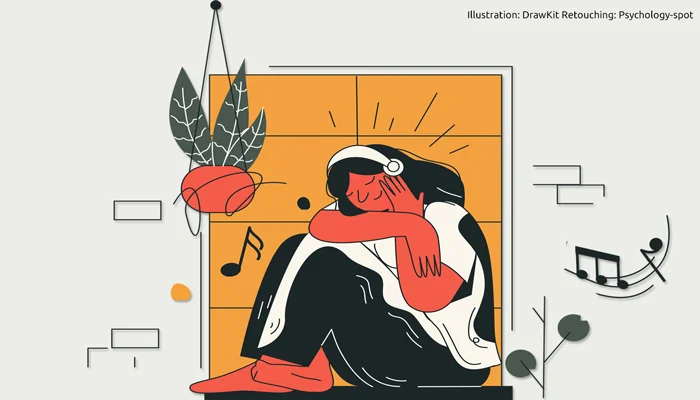
There are songs that incite nostalgia, others relax us and some offer us an extra dose of energy. However, music not only affects our emotional state but can also determine our behavior. It can cause us to drink more, spend more than we intended, or even behave unethically. Without a doubt, music is much more than a simple instrument to entertain us.
The surprising effects of music on our mind
1. “Angry” music improves our performance
We normally think of anger as something negative but this emotion can also be used positively and even taken advantage of. Anger allows us to stay focused on the reward, enhances our perseverance and even makes us more optimistic people.
In a curious experiment carried out at Stanford University and Boston College, some students were recruited to play a computer game. Before starting the game, some listened to neutral, arousing, or anger-expressing music. The results left no room for doubt: music with a furious undertone improved their results and predisposed them positively for the task.
Perhaps it goes without saying that this type of music is not valid for all contexts but only when we want to improve our performance in a competitive task.
2. Music reduces pain
There are different tricks to reduce pain and not all of them are reduced to taking a painkiller. In fact, that should be the last option, the last resort when all others have failed. Now a very interesting study carried out at Bishop’s University has shown that music is also an excellent instrument to ease the pain.
On this occasion, psychologists recruited 80 people, to whom they applied painful stimuli. While they did so, some were silent, others could distract themselves by looking at some famous paintings and a third group listened to music of their choice. Thus, it could be seen that people who listened to the music reported less pain, less anxiety and an increase in pain tolerance.
In fact, previous studies have suggested that people who listen to music daily report fewer symptoms of anxiety and depression. Curiously, no relationship has been found between the musical genre and its positive effects on our mood or to reduce pain, so everything seems to indicate that the key lies in liking music and enjoying it.
3. Music makes us more receptive to love
If you want to make a good impression on someone and get their attention, there is nothing better than playing romantic music. This is not a popular myth, a study carried out at the University of Bretagne-Sud has confirmed it. These psychologists recruited young women and asked them to wait in a room. Meanwhile, neutral or romantic music was transmitted through a speaker. Five minutes later the women met the interviewer who, taking advantage of a pause, flirted with them and asked for their phone number. What happened?
Only 27.9% of women who had listened to neutral music gave their phone number but this figure increased to 52.3% among those who had listened to romantic music. The difference is particularly significant, especially considering that the only thing that has made a difference is one song.
References:
Guéguen, N. et. Al. (2010) Love is in the air: Effects of songs with romantic lyrics on compliance with a courtship request” from Psychology of Music. Psychology of Music; 38(3): 303-307.
Tamir, M. et. Al. (2008) Hedonic and Instrumental Motives in Anger Regulation. Psychological Science; 19(4): 324-328.
Mitchell, L. A. et. Al. (2008) An investigation of the effects of music and art on pain perception. Psychology of Aesthetics, Creativity and the Arts; 2(3): 162-170.




Leave a Reply